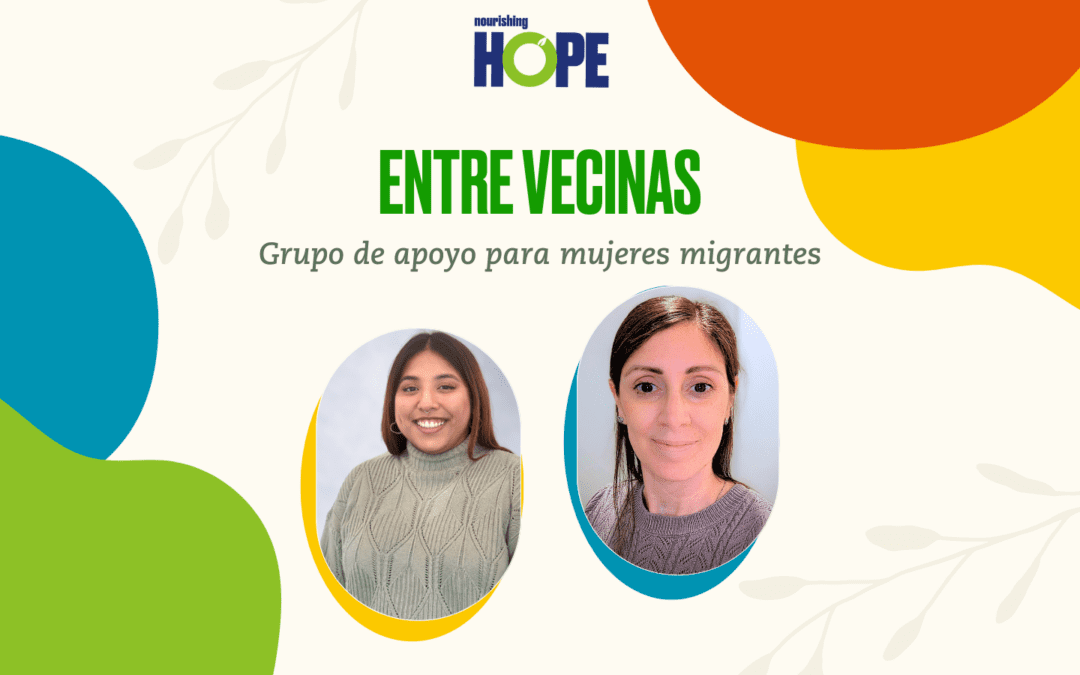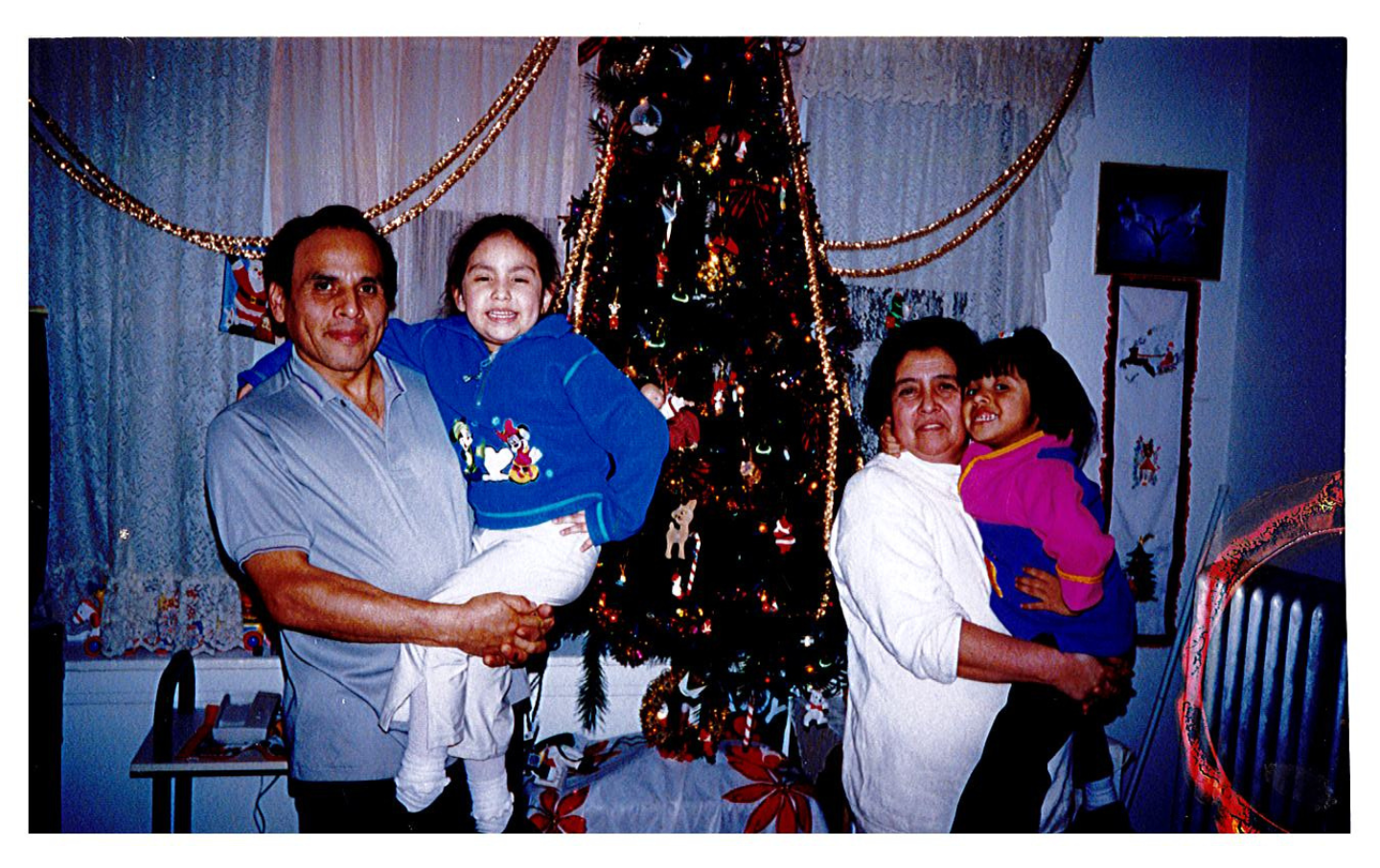Vanessa Garcia (left) and Melisa Favre (right), will host Entre Vecinas this February.
Haga clic aquí para ver la versión en español de esta publicación de blog.
Melisa Favre knows from personal experience how challenging it can be to start over in a new country.
In 2002, when Favre was 17, her home country of Argentina was reeling from the largest economic crisis in its history, known as La Crisis del 2001 or the Argentine Great Depression. The unemployment rate was soaring at the time and more than half of Argentines lived below the poverty line.
She and her sister, Florencia, moved to the United States in hopes of better opportunities. The move was overwhelming.
“Reflecting back on it, I can’t believe that I got through it, to be honest with you.”
Today, Favre is a mental wellness intern at Nourishing Hope — and she wants to help Latina women who find themselves in similar situations.
To that end, Favre and bilingual therapist Vanessa Garcia are launching a new mental health group for migrant women called Entre Vecinas (which means “Between Neighbors” in English). Beginning this month, the support group, which will be facilitated in Spanish, will be held in-person for ten weeks at no cost to its participants.
The support group is the latest example of Nourishing Hope’s mental wellness team’s efforts to provide community and resources to underserved populations in Chicago.
“We started to have intentional conversations around how a space may be needed for migrant women specifically — cis or trans — because we know the experience is very layered for women,” said Garcia.
Since August 31, 2022, more than 35,000 migrants and asylum seekers have arrived in Chicago from the southern border. Mental health is a growing concern. WBEZ recently reported on the looming mental health crisis facing the growing migrant population in Chicago.
Upon arrival in the United States, Favre experienced stress, culture shock and loneliness. She eventually found her footing — and community with other Spanish speakers — in a free English class.
“That was a great resource for me,” said Favre, who is completing her master’s degree in clinical mental health counseling at DePaul University. “But had it not been for other people that had gone through the same experience, I wouldn’t have known where to start.”
Migrants and refugees — and particularly girls and women — are at higher risk of depression, anxiety and other mental health disorders, according to a report last year from the World Health Organization.
In addition to these traumas and challenges, migrants and asylum seekers have recently had to navigate a barrage of anti-immigrant sentiment.
Garcia wants migrants to know:
“You are welcome here. There’s a safe space here for you.”
In hosting the group in Spanish, Garcia and Favre hope to foster an environment of authentic expression.
“Things often get lost in translation or don’t translate well from Spanish to English,” Garcia said.
In addition to providing a sense of community and belonging, Entre Vecinas intends to encourage migrant women to hold onto their cultures and traditions.
“I’ve seen — in the generations of migrant folks in my family — I’ve seen some of them abandon their language or their traditions,” Garcia said. “We want to let people know that there’s a way to adjust to a new life, a new society, without abandoning those parts of us.”
At the age of seven, Garcia’s mother joined her parents in the United States. They had moved from Mexico seeking work and financial stability. Garcia’s father migrated from Mexico at 21 with his band, Fuerza del Corazon, in hopes of fulfilling their dreams as musicians. Years later, his parents joined his family in Chicago.
“My paternal abuelitos, as our caretakers for most of our childhood, passed down traditions and celebrations in the best ways,” Garcia said.
Entre Vecinas is open to women that have had migration experiences at any point in their life. In addition to serving as a space to share and reflect, participants will also be able to share resources and information with one another.
A therapy group may not be the solution to the larger systemic inequities that migrant families are navigating, Garcia said, but it can make a difference in the lives of those participating.
“We really do hope that it builds a foundation,” they said.
Interested participants can learn more or apply here. More information on Nourishing Hope’s mental wellness services is available here.

